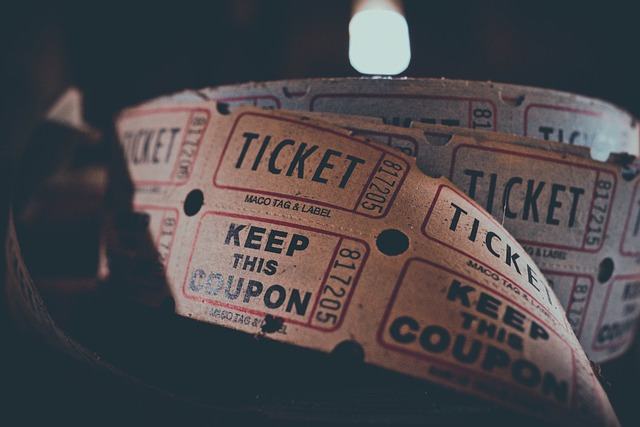Marketing events play a crucial role in the success of Medicare sales. These events can be categorized into educational events and sales events. Both have distinct purposes and regulations. But What is Allowed at a marketing event for medicare sales? This post will guide you through what is allowed at a marketing event for Medicare sales.
We will cover key aspects, from permissible activities to the use of marketing materials, ensuring compliance with CMS guidelines. Whether you are planning a formal sales event or an informal gathering, this guide will help you navigate the rules effectively.
Educational Events vs. Sales Events

Educational Events
These events focus on providing information about Medicare and its various plans. The main goal is to educate Medicare beneficiaries without pushing for enrollment. At educational events, discussing specific Medicare plans or distributing enrollment forms is not allowed.
These events should be purely informational, helping beneficiaries understand their options and the benefits of different plans. Educational events must adhere to CMS guidelines, ensuring that no marketing materials or promotional items are handed out. The primary objective is to help beneficiaries receive health care services by providing them with necessary information.
Sales Events
Unlike educational events, sales events are designed to promote Medicare plans and enroll potential clients. Sales events can be either formal or informal.
During these events, licensed insurance agents or sales representatives can discuss specific Medicare plans, distribute marketing materials, and assist beneficiaries with enrollment forms. These events require a thorough understanding of CMS guidelines to ensure compliance.
Formal sales events might include presentations in a public venue, while informal sales events could be more casual, held in settings like adjacent buildings or community centers. The key is to clearly notify potential attendees about the event’s purpose.
Planning a Successful Medicare Sales Event
Planning is crucial for a successful Medicare sales event. Begin by submitting an event request form to the carriers involved. Translating your content ensures that the event is approved and compliant with CMS guidelines. Next, create a comprehensive pre-enrollment checklist. This checklist will guide the flow of the event, ensuring all necessary topics are covered.

To attract potential clients, use a mix of marketing activities. Notify potential attendees through various channels, including carrier websites, local advertisements, and direct mail. Make sure to include a sign-in sheet at the entrance to track attendance and follow up on future appointments. Providing refreshments like light snacks can make the event more appealing, but ensure these offerings comply with CMS guidelines on nominal gifts.
Conducting the Event: Do’s and Don’ts
During the event, focus on providing valuable information while adhering to CMS-approved presentations.
Do not pressure attendees into making immediate decisions. Instead, offer them statistical data and star ratings information to help them make informed choices. Hand out plan materials that are easy to understand and available in multi-language inserts if needed.
It’s crucial to avoid certain practices during Medicare sales events.
Do not offer other monetary rebates or incentives to attendees. Ensure all promotional items are compliant with CMS regulations. Avoid discussing future appointments in a manner that pressures attendees.
Instead, provide your business card or a toll-free number for them to contact you later. Always have a scope of appointment form ready for those who express interest in further discussions.
Post-Event Follow-Up
Follow-up is essential for converting attendees into enrollees. Use the sign-in sheets to reach out to potential clients. Schedule follow-up appointments and provide additional information they might need.
Ensure all follow-up communications comply with CMS guidelines and respect the privacy of the beneficiaries.

For potential enrollees who require more assistance, offer to set up future appointments at their convenience. This is particularly important for persons with special needs. Always seek written consent before making any follow-up contact.
Using a TTY number for beneficiaries with hearing impairments can enhance communication and accessibility.
Venue Considerations
Choosing the right venue is key to the success of your event. Public settings like community centers, libraries, and health fairs are ideal for both educational and sales events.
However, avoid conducting events in hospital patient rooms or pharmacy counter areas, as these locations might be deemed inappropriate for marketing activities.
Ensure the venue is accessible to all attendees, including those with special needs. If your event is in a public venue, clearly mark the location and provide detailed directions. Adjacent buildings or the same location as previous events can be used to create a sense of familiarity and convenience for attendees.
Legal and Ethical Compliance
Compliance with CMS guidelines is non-negotiable. Ensure all your marketing materials, from enrollment forms to appointment forms, are CMS-approved.
Independent agents must stay updated with the latest regulations to avoid any violations. Using secret shoppers can help assess the compliance and effectiveness of your sales meetings.
Respect the privacy of potential clients and always obtain permission to contact them. Avoid aggressive sales tactics and focus on providing value and clarity.
Your goal is to assist Medicare beneficiaries in making informed decisions about their health care services. That’s What is Allowed at a marketing event for medicare sales.
Myth Busting: Common Misconceptions About Medicare Sales Events

Myth 1: Medicare Sales Events Are Just for Selling Plans
Fact: While the primary goal of Medicare sales events is to promote and enroll beneficiaries in Medicare Advantage plans, these events serve multiple purposes.
Licensed insurance agents and sales representatives use these gatherings to educate attendees about various Medicare options, including Part D plans.
Sales seminars often include detailed talking points to help attendees understand different plans and their benefits.
At these events, agents do more than just distribute enrollment applications.
They provide comprehensive information about the carrier’s plan, ensuring potential enrollees have a thorough understanding before making a decision. Sales activities may also include addressing common questions and dispelling myths about Medicare Advantage.
Myth 2: Educational Events and Sales Events Are the Same
Fact: Educational events and sales events are fundamentally different in purpose and execution. Educational events focus solely on informing beneficiaries about Medicare.

They do not involve marketing or sales activities. During these events, there is no discussion of specific Medicare Advantage plans or distribution of enrollment forms. The aim is to help beneficiaries approach their Medicare options with confidence and clarity, without any sales pressure.
Sales events, on the other hand, are designed to market specific plans and encourage enrollment.
These events require a sign-in sheet, and agents are permitted to distribute plan materials, including multi-language inserts, and assist with enrollment applications.
Understanding this distinction helps beneficiaries choose the type of event that best meets their needs.
Myth 3: Providing Refreshments and Gifts at Sales Events Is Not Allowed
Fact: Contrary to this common belief, providing refreshments and nominal gifts at sales events is allowed, but with restrictions. CMS guidelines permit the provision of light snacks and nominal gifts as long as they do not exceed a certain value and are not used as incentives to require attendees to enroll.

These items are meant to create a welcoming environment without influencing beneficiaries’ decisions.
However, it is important that these refreshments and gifts are not tied to the enrollment process.
Licensed insurance agents and sales representatives must ensure that these offerings are compliant with CMS regulations and are clearly for hospitality purposes only.
Enhancing Your Understanding
By dispelling these myths, we aim to provide a clearer picture of what Medicare sales events entail. Educational events are strictly informative, while sales events focus on marketing plans within the allowed guidelines.
Providing nominal gifts and refreshments is permissible, helping to create a friendly atmosphere for beneficiaries.
With accurate information, both beneficiaries and agents can navigate Medicare sales events more effectively and ethically.
Pros and Cons of Providing Refreshments at Medicare Sales Events
Pros
- Creates a Welcoming Atmosphere: Providing refreshments can make attendees feel comfortable and appreciated, enhancing their overall experience at the event.
- Encourages Attendance: The promise of light snacks can be an incentive for beneficiaries to attend, particularly if the event is held in a public setting.
- Facilitates Engagement: Offering refreshments can lead to a more relaxed environment, encouraging attendees to ask questions and engage more with the sales representatives.
- Hospitality Compliance: As long as the refreshments comply with CMS guidelines regarding nominal gifts, they can be a compliant way to offer hospitality without crossing marketing boundaries.
- Enhances Event Image: Providing refreshments can give a professional and caring impression of the event organizers, potentially increasing trust in the Medicare Advantage plans being discussed.
Cons
- Cost Implications: Providing refreshments incurs additional costs, which might be significant depending on the number of attendees and the type of refreshments offered.
- Regulatory Risks: If not carefully managed, providing refreshments could accidentally violate CMS guidelines on nominal gifts, leading to potential compliance issues.
- Perception of Bias: Some attendees might perceive the provision of refreshments as a tactic to influence their decisions, potentially undermining the objective nature of the educational event.
- Logistical Challenges: Organizing and distributing refreshments, especially in a public setting, can be logistically challenging and time-consuming.
- Health Concerns: There might be concerns about food allergies or dietary restrictions among attendees, necessitating careful planning and clear labeling of all food items provided.
Maximizing Engagement at Medicare Sales Events
To ensure a successful and engaging Medicare sales event, consider the following strategies:
- Interactive Presentations: During a sales seminar, use interactive elements to keep attendees engaged. This could include Q&A sessions, live demonstrations, and easy-to-understand visual aids.
- Knowledgeable Representatives: Ensure that every sales representative and licensed insurance agent present is well-versed in the details of the Medicare Advantage plan they are promoting. They should be prepared to answer specific questions and provide comprehensive explanations.
- Localized Approach: Utilize your local rep to tailor the presentation to the service area. Highlight benefits and features that are particularly relevant to the local audience.
- Diverse Materials: Distribute multi-language inserts and plan materials to cater to a diverse audience. This ensures that non-English speaking attendees can fully understand the information provided.
- Convenient Enrollment: Simplify the enrollment process by providing easily accessible enrollment forms and clear instructions on how to complete them. Direct attendees to the carrier website for more information or to complete their application online.
- Comfort and Hospitality: Create a welcoming atmosphere by providing refreshments and nominal gifts. Ensure these items are compliant with CMS guidelines and are offered purely for hospitality purposes.
By incorporating these strategies, you can enhance the effectiveness and appeal of your Medicare sales events, ensuring that attendees leave with a thorough understanding of their Medicare options.
Conclusion on What is Allowed at a marketing event for medicare sales
So, What is Allowed at a marketing event for medicare sales? Marketing events for Medicare sales require careful planning and adherence to strict guidelines. Whether hosting educational events or sales seminars, it’s essential to focus on providing clear, valuable information while ensuring compliance with CMS regulations. By following these guidelines, you can conduct successful Medicare sales events that benefit both the beneficiaries and your organization.
Remember, the key to success lies in thorough preparation, clear communication, and a strong commitment to ethical practices. With the right approach, your marketing events can effectively inform and assist Medicare beneficiaries, leading to better health care decisions and successful enrollments.
Frequently Asked Questions on What is Allowed at a marketing event for medicare sales
1. Can I receive an enrollment form at the event?
Yes, you can receive an enrollment form at the event. These forms are available to help you enroll in one carrier’s plan that suits your needs. Our licensed insurance agents will assist you in filling out the form and ensure that you understand all the details.
2. Are multi-language inserts available for non-English speakers?
Absolutely! We provide multi-language inserts to ensure that all attendees, regardless of their primary language, can fully understand the information presented. These inserts are designed to make the enrollment process easier for everyone.
3. Are the refreshments considered a nominal gift?
Yes, the refreshments provided at the event are considered a nominal gift. They are offered in accordance with CMS guidelines and are purely for hospitality purposes, not as an incentive for you to enroll in a specific plan.
4. What is the purpose of the materials originally published by carriers?
The materials originally published by carriers are used for marketing purposes. These materials, including brochures and informational pamphlets, are designed to provide you with comprehensive information about one carrier’s plan, helping you make an informed decision about your healthcare options.



